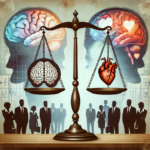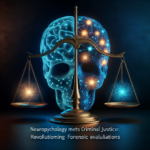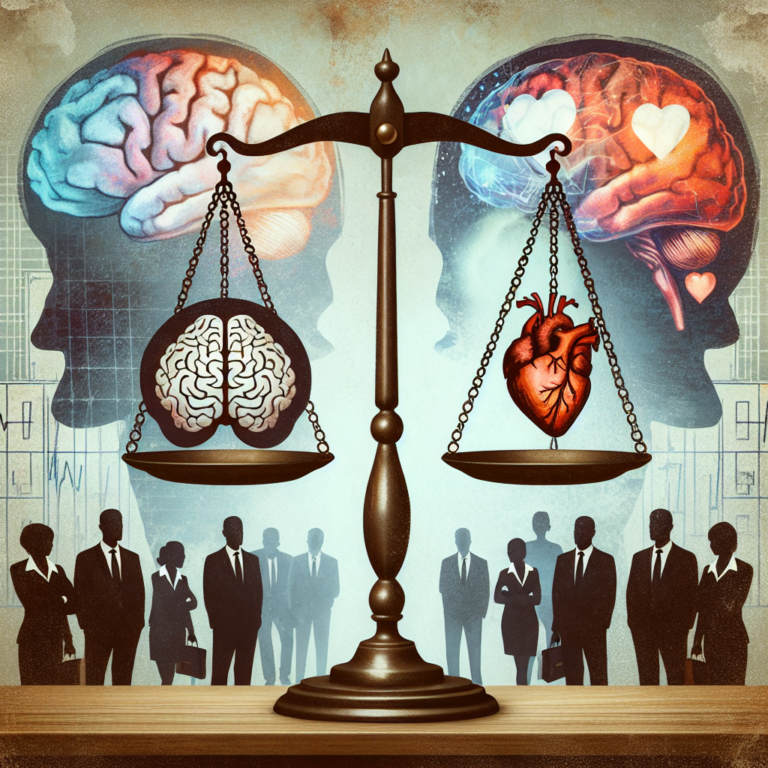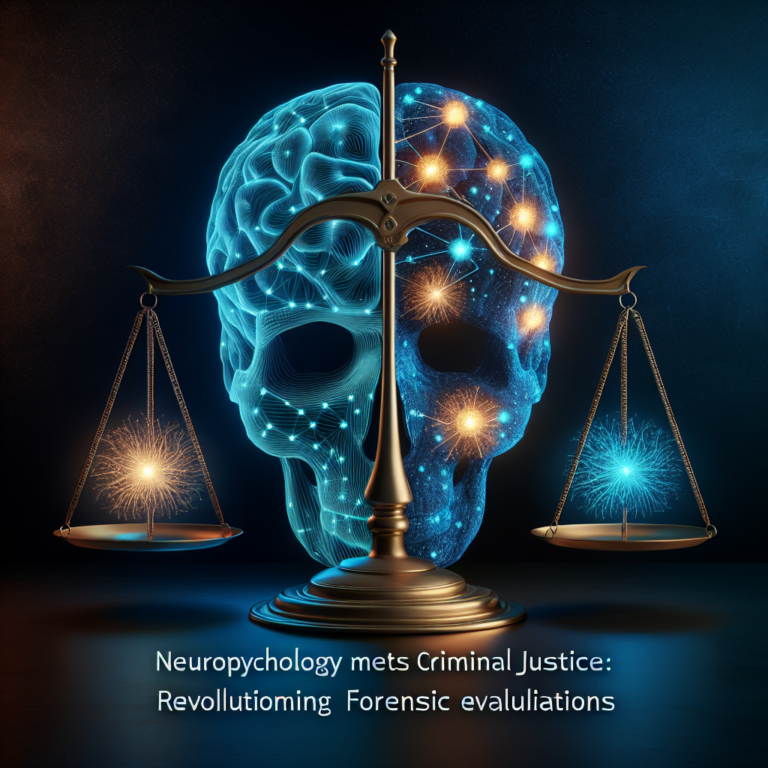
Introduction
In the labyrinth of criminal justice, the age-old question of culpability often stands at the crossroads of morality, law, and psychology. As society grapples with understanding the minds behind criminal behavior, a fresh perspective emerges—Neuropsychological Evaluations: A New Lens on Criminal Responsibility. This burgeoning field not only promises to reshape our understanding of criminal intent but also carries profound implications for justice, rehabilitation, and societal safety.
Imagine a world where a deeper comprehension of brain function can illuminate the complexities behind criminal acts. This article digs into the essential role neuropsychological evaluations play in deciphering criminal responsibility, offering insights that are not merely theoretical but backed by compelling case studies and expert knowledge.
Understanding Neuropsychological Evaluations
What Are Neuropsychological Evaluations?
A neuropsychological evaluation is a comprehensive assessment that explores how brain functioning influences thoughts, behaviors, and emotions. By using sophisticated testing methods, professionals can identify deficits or abnormalities in cognitive and emotional processing that may relate to criminal behavior.
Why Are These Evaluations Crucial in Criminal Justice?
The importance of neuropsychological evaluations lies in their ability to provide objective evidence regarding an individual’s mental state. This evidence can substantially influence legal outcomes, shedding light on questions of intent, capacity, and culpability. Far from being merely an academic exercise, these evaluations can lead to a more humane and informed justice system, balancing individual accountability with societal protection.
The Intersection of Neurology and Criminal Responsibility
Historical Perspectives
Historically, criminal responsibility hinged on notions of willful intent and moral accountability. However, advancements in neuroscience and psychology have begun to unravel this rigid framework. Understanding the brain’s complex architecture allows us to appreciate how mental disorders or cognitive impairments can cloud judgment and spur actions that are socially deviant yet not inherently malicious.
Key Concepts in Neuropsychological Assessments
In conducting neuropsychological evaluations, experts explore several domains:
- Cognition: How cognitive impairments affect decision-making.
- Emotion Regulation: The ability to control emotional responses that might lead to criminal behavior.
- Impulsivity: How impulsive actions can correlate with neurological dysfunction.
For instance, consider the case of a young man exhibiting violent behavior linked to a traumatic brain injury. His emotional dysregulation, examined through neuropsychological evaluation, became pivotal in understanding not just his actions but also underlying responsible factors that might excise him from full culpability.
Case Studies in Neuropsychological Evaluations
Case Study 1: The Impulsive Offender
Background
John, a 28-year-old man with a history of impulsivity and substance abuse, was charged with assault after a violent altercation in a bar.
Neuropsychological Evaluation
John underwent a neuropsychological evaluation, revealing significant deficits in executive function and impulse control, likely linked to both traumatic brain injury and substance abuse.
Analysis
The evaluation suggested that John’s capacity to make rational, controlled decisions was severely impaired. This insight was critical in court, where the defense argued for a reduced sentence due to diminished responsibility tied to neurobiological factors—a clear illustration of Neuropsychological Evaluations: A New Lens on Criminal Responsibility.
Case Study 2: The Mentally Ill Defendant
Background
Mary, a 45-year-old woman with a severe mental disorder, was arrested for arson. Her mental health history included schizophrenia, which had distorted her perception of reality.
Neuropsychological Evaluation
The evaluation detailed how her condition influenced her understanding of consequences and moral responsibility.
Analysis
In this instance, Neuropsychological Evaluations: A New Lens on Criminal Responsibility was pivotal for the jury; it provided a framework to differentiate between an intentional act and an act driven by profound mental illness, influencing subsequent treatment rather than punitive measures.
Case Study 3: The Brain Disorder Dilemma
Background
Stephen, a 51-year-old businessman, committed financial fraud. His previously impeccable character was shattered by neurodegenerative disease, manifesting symptoms that impaired his judgment.
Neuropsychological Evaluation
The evaluation indicated significant cognitive decline that diminished his decision-making abilities.
Analysis
The exploration of neuropsychological factors led to a unique argument: can we hold someone fully accountable when their brain’s deterioration distorts their moral compass? Here, Neuropsychological Evaluations: A New Lens on Criminal Responsibility provided essential insights into understanding the intersection of mental illness and intentionality.
Enhancing the Criminal Justice System with Neuropsychological Insights
Reformation Over Punishment
Integrating neuropsychological findings into the criminal justice system could shift the narrative from pure retribution to constructive reform. When courts consider evaluations that elucidate the mind’s workings, they can implement tailored rehabilitation programs that acknowledge mental health and cognitive deficits.
Challenges and Considerations
While neuropsychological evaluations are an invaluable tool, they are not without challenges. Issues of reliability, standardization of tests, and ethical considerations present hurdles in ensuring evaluations are accurate and fairly interpreted.
Key Takeaways
- Legal Revolution: As Neuropsychological Evaluations: A New Lens on Criminal Responsibility gains traction, it prompts a reevaluation of how we perceive and establish criminal culpability.
- Holistic Understanding: These assessments offer a more nuanced understanding of human behavior, blending psychology, neurology, and ethics.
- Future Implications: The incorporation of neuropsychology into legal practices fosters a justice system that prioritizes mental health—as well as public safety—over purely punitive actions.
FAQs
1. What types of disorders are assessed in neuropsychological evaluations?
Neuropsychological evaluations can assess a wide range of disorders, including traumatic brain injuries, neurodegenerative diseases, mood disorders, and personality disorders.
2. How reliable are neuropsychological evaluations in court?
While not infallible, these evaluations are highly valuable. They offer a perspective based on empirical data and established psychological principles, aiding judges and juries.
3. Can neuropsychological evaluations lead to a dismissal of charges?
In some cases, if evaluations reveal significant impairments affecting cognitive function, they can lead to diminished responsibility or alternative sentencing aimed at rehabilitation.
4. What is the role of the evaluator in the judicial process?
The evaluator acts as an expert witness, providing analyses of how an individual’s mental state and cognitive abilities may relate to the alleged criminal behavior.
5. Are neuropsychological evaluations used in civil cases as well?
Yes, beyond criminal law, they can be employed in civil cases, particularly those involving personal injury claims, disability evaluations, and family law matters.
Conclusion
The narrative around criminal responsibility is evolving, and Neuropsychological Evaluations: A New Lens on Criminal Responsibility is a cornerstone of this transformation. As our understanding deepens, so too does our capacity for empathy, judicial fairness, and societal protection. The insights derived from these evaluations empower the legal system to not only seek justice but also promote healing and growth—transforming lives one evaluation at a time.
Engaging in this discourse is not just academic; it is a call to action. As we embrace these revolutionary perspectives, we can become advocates for a criminal justice system that honors the complexities of the human brain and spirit, striving for a more equitable society for all.















